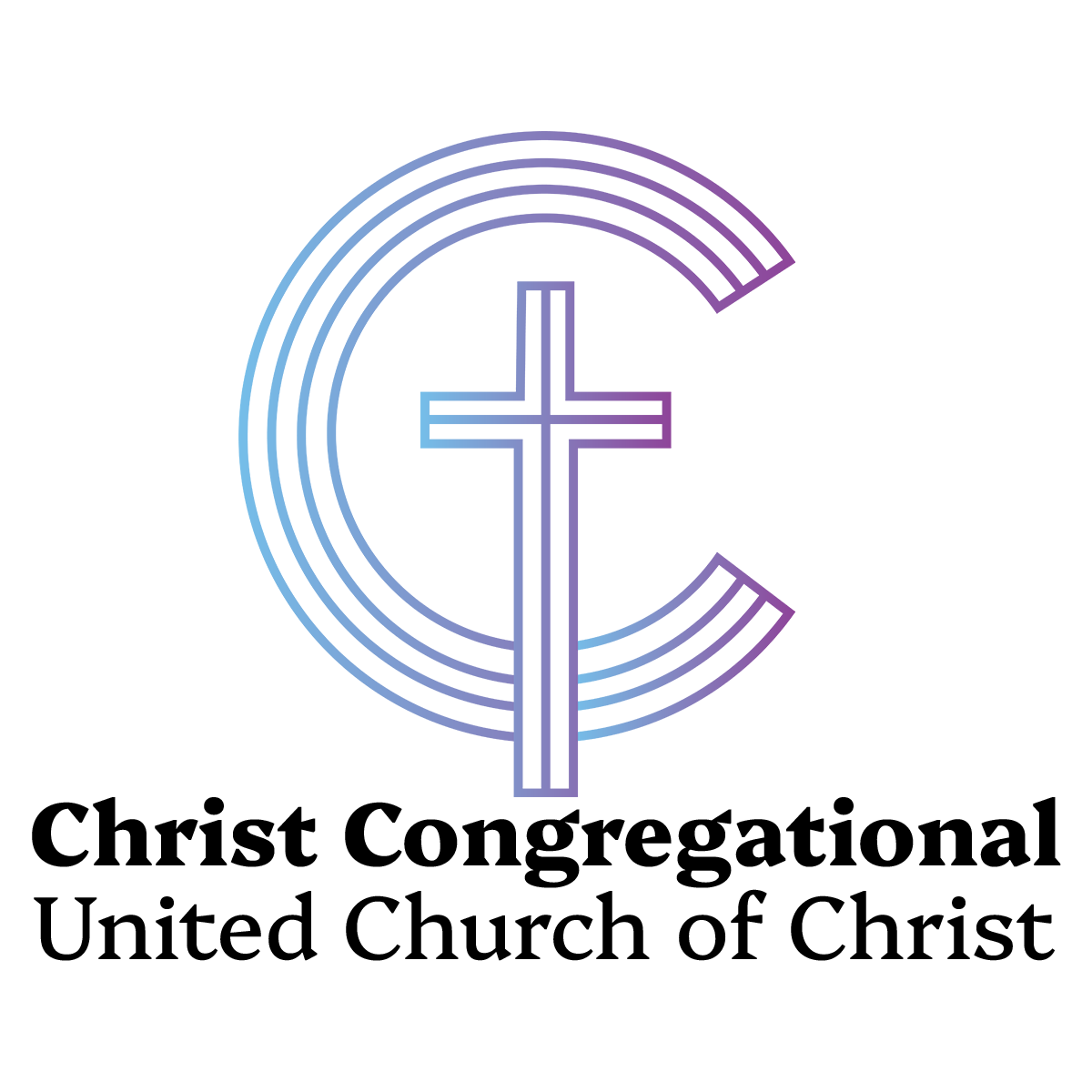Welcome to CCUCC
Where we’re more than just a place of worship; we’re a vibrant community built on the foundation of love, inclusion, and acceptance.
Are you ready to experience a church where diversity is celebrated, justice is upheld, and radical Christ-like love is practiced?
At Christ Congregational Church, we believe in fostering a community where judgment is replaced with love and inclusivity. We're committed to creating a space where everyone feels welcomed and valued, regardless of background or beliefs. Here, you'll find a sanctuary where authenticity is celebrated, doubts are welcomed, and questions are encouraged. Our journey together is one of growth, learning, and mutual support.
Join us as we strive to build a better world for our families and advocate for a just society. Through our various outreach programs and social justice initiatives, we're actively working to make a positive impact in our community and beyond. From feeding the hungry to standing up for marginalized communities, we're dedicated to embodying the teachings of Jesus in our actions.
No matter who you are or where you come from, you'll find a spiritual home here at Christ Congregational UCC. Your journey is celebrated, and your uniqueness is cherished. Together, we're creating a world where love reigns supreme, and all are welcomed with open arms. We invite you to join us on this transformative journey of faith, hope, and love.
We Are All About Community
We are all about building a loving, inclusive community where everyone belongs.
We invite you to belong, grow, and thrive in our vibrant community of faith. Here, you’ll find a place to be authentic, where love, justice, and radical welcome guide us. Come as you are, and join us in creating a world transformed by compassion and unity.
Why CCUCC
What makes UCC different than other churches?
Emphasis on Inclusivity: The UCC is known for its commitment to inclusivity and openness. Many UCC congregations explicitly welcome people of all backgrounds, races, sexual orientations, gender identities, and theological perspectives.
Congregational Polity: Unlike hierarchical denominations where decisions are made at higher levels of authority, the UCC operates under a congregational polity. This means that individual congregations have a high degree of autonomy in decision-making, including the selection of clergy and the interpretation of doctrine.
Social Justice Advocacy: The UCC has a strong tradition of social justice advocacy, dating back to its involvement in abolitionism and the civil rights movement. Today, many UCC congregations actively engage in advocacy work on issues such as racial justice, LGBTQ+ rights, environmental sustainability, immigration reform, and economic equality.
Theological Diversity: The UCC embraces theological diversity and encourages freedom of belief and interpretation. While there are shared theological principles, individual members and congregations are encouraged to engage in critical inquiry and dialogue, leading to a wide range of theological perspectives within the denomination.
Ecumenical and Interfaith Engagement: The UCC values ecumenical and interfaith dialogue and collaboration. It seeks to build bridges with other Christian denominations as well as with faith traditions outside of Christianity, fostering understanding and cooperation across religious boundaries.
Open Communion: Many UCC congregations practice an open table, welcoming all who seek God to participate in communion regardless of their religious affiliation or background. This inclusive approach to sacraments reflects the UCC's commitment to hospitality and welcome.
Commitment to Education: The UCC places a strong emphasis on education, both in terms of theological education for clergy and laity and in promoting lifelong learning and spiritual growth. Many UCC churches offer opportunities for theological study, discussion groups, and educational programs for all ages.
Denomination: The UCC is a mainline Protestant Christian denomination in the United States, formed in 1957 through the merger of four Protestant denominations.
Congregational Polity: The UCC is known for its congregational polity, which gives autonomy to individual churches while also fostering connections through regional and national bodies.
Beliefs: The UCC is characterized by its commitment to the principles of unity, justice, and inclusivity. It affirms the priesthood of all believers and encourages theological diversity.
Social Justice Advocacy: The UCC has a long history of social justice advocacy, including involvement in civil rights, environmental justice, LGBTQ+ rights, and other progressive causes.
Open and Affirming: Many UCC congregations are "Open and Affirming," welcoming people of all sexual orientations, gender identities, and backgrounds.
Ecumenical and Interfaith Engagement: The UCC values ecumenical and interfaith dialogue and collaboration, seeking common ground with other Christian denominations and faith traditions.
Sacraments: The UCC celebrates two sacraments, baptism and communion, and practices an open table, inviting all who seek God to participate.
Commitment to Education: The UCC places a strong emphasis on education, both in terms of theological education for clergy and laity and in promoting lifelong learning and spiritual growth.
Denomination: The UCC is a mainline Protestant Christian denomination in the United States, formed in 1957 through the merger of four Protestant denominations.
Congregational Polity: The UCC is known for its congregational polity, which gives autonomy to individual churches while also fostering connections through regional and national bodies.
Beliefs: The UCC is characterized by its commitment to the principles of unity, justice, and inclusivity. It affirms the priesthood of all believers and encourages theological diversity.
Social Justice Advocacy: The UCC has a long history of social justice advocacy, including involvement in civil rights, environmental justice, LGBTQ+ rights, and other progressive causes.
Open and Affirming: Many UCC congregations are "Open and Affirming," welcoming people of all sexual orientations, gender identities, and backgrounds.
Ecumenical and Interfaith Engagement: The UCC values ecumenical and interfaith dialogue and collaboration, seeking common ground with other Christian denominations and faith traditions.
Sacraments: The UCC celebrates two sacraments, baptism and communion, and practices an open table, inviting all who seek God to participate.
Commitment to Education: The UCC places a strong emphasis on education, both in terms of theological education for clergy and laity and in promoting lifelong learning and spiritual growth.
Our Pastor
We are blessed to be led by Rev. Candace Thomas, affectionately known as Pastor Candy, who brings nearly three decades of experience and deep compassion to our community. Pastor Candy’s journey with us began in 2018 as our Interim Minister, and she was recently Installed as Settled Pastor in 2023. She is dedicated to guiding us in faith, social justice, peace, and outreach, especially to those on society’s margins.
Pastor Candy’s heart for service extends beyond our congregation. From ministering to the homeless in San Francisco to supporting her own family here in Florida, her life is a testament to love in action. Now residing in Bay Harbor Islands with her cat, Domino, Pastor Candy looks forward to welcoming you and journeying together in a vibrant and inclusive faith community. Come, be a part of this journey with us!
Our Staff
“Finally, a church where I can just be me and know that I am loved for who I am. This place has become a second home to me and the folks that come, a family”
“I was struggling to find a faith community that was not only accepting of others, but that aligned itself with my thought on what social justice looks like in the present, and this place was just that.”





